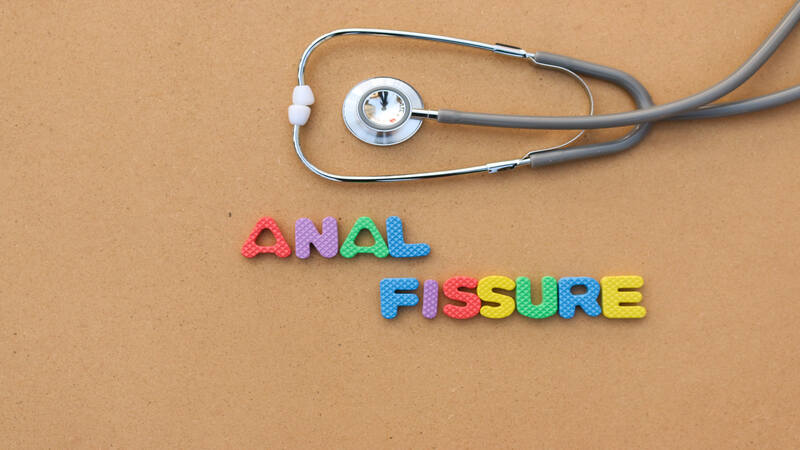
Digestive issues in toddlers can be a nightmare for parents. Anorectal disorders are one such common condition in toddlers. Anal fissure in toddlers are most often caused due to constipation. Constipation is one of the most common complaints with which parents take their toddlers to the doctor.
Anal fissures in toddlers are a common condition, resulting mostly due to constipation. Avoiding and receiving early treatment for constipation can help prevent this condition. Read on more in the below article about this condition, the symptoms and the ways to prevent and treat it.
What is Anal Fissure?
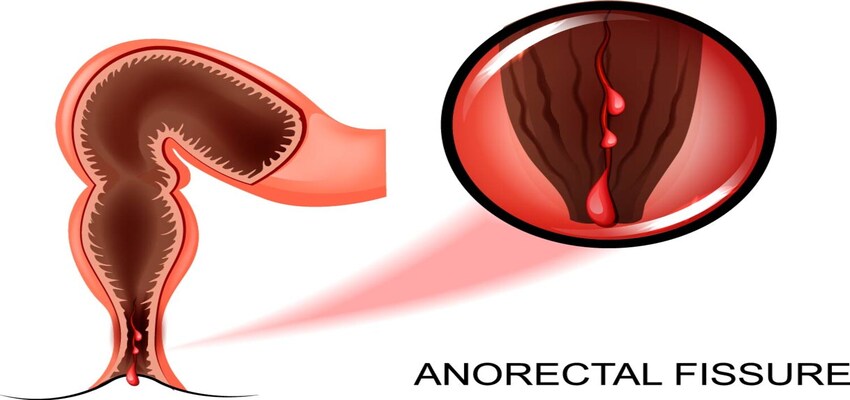
An anal fissure is a tiny crack or tear in the skin around the anus. It is usually a painful condition that results from stretching of the anal mucosa beyond its normal capacity. The anus is a muscular opening at the end of the digestive tract from where stools are passed. Fissures are really common in toddlers, though they can happen in any age group.
Causes of Anal Fissures in Toddlers
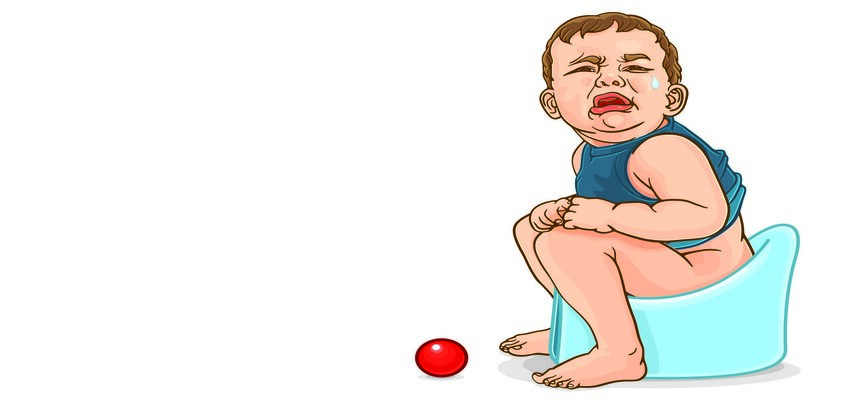
Usually, anal fissures are common in toddlers who take a low-fiber diet resulting in the passing of hard stools. Overstraining can result in tears in the mucosa. The common causes are-
- Constipation or straining during bowel movement
- Passing a hard or large stool (1)
- Diet low in vegetables and fiber
- Severe diarrhea
- Intense scratching around the anal area in case of pinworm infestation
- Inflammatory bowel disease like Crohn’s Disease (2)
Why Are Kids Prone to Anal Fissures?
Most toddlers suffer from constipation, resulting in passing of hard stool that can result in vertical tears in the anal mucosa. In younger kids, the sphincter activity is quite unstable plus the toddler doesn’t know how to defecate well. In addition, the skin around the anal mucosa is quite delicate in toddlers adding more to the stress. The anal opening is quite small too, which becomes problematic in the case of a large and hard stool.
Signs And Symptoms of Anal Fissures in Toddlers
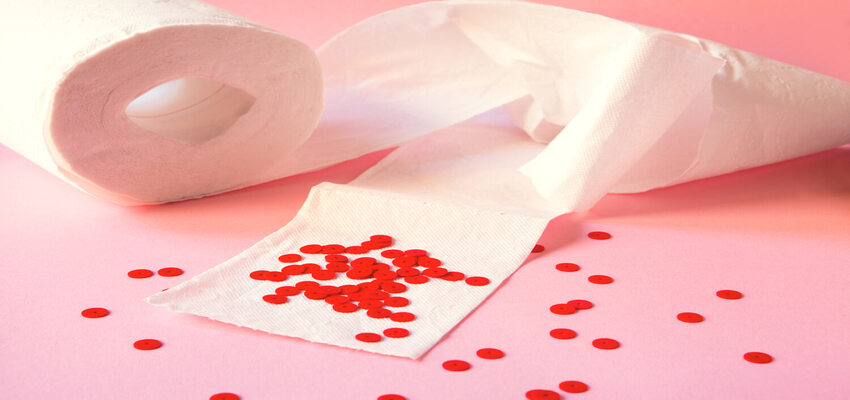
The presentation of an anal fissure can be quite painful and disturbing for your toddler. Knowing the signs and symptoms can help diagnose the condition before so that an early intervention can be done. The common signs and symptoms of an anal fissure in young kids are-
- Pain around the anus. Pain is often sharp and can be really distressing
- Intense pain while passing motion and sometimes a few minutes after a bowel movement
- Burning sensation or itching around the anus with popping
- Passing of bright red blood from the anus. A bright red color indicates fresh blood (3)
- Blood on the surface of stools and on the toilet paper upon wiping
- Sometimes a visible crack or tear is present on the anal mucosa
How Are Anal Fissures Diagnosed in Toddlers?
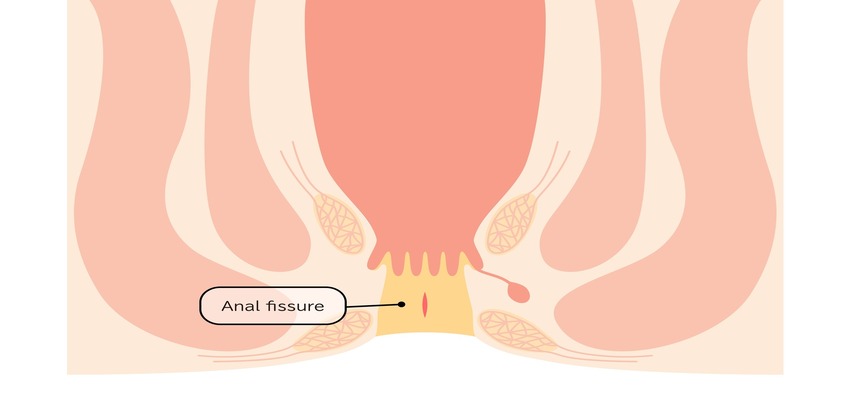
Most often, parents take their toddlers to the doctor with complaints of severe pain and excessive crying. Presence of fresh blood in the stool is also enough to give parents a panic attack. A detailed and thorough clinical history of the kid is very essential in diagnosing anal fissures. Usually, a history of chronic constipation is present in the toddler. A gentle examination of the kid’s anal area is also important, as cracks or tears are often visible. The inspection of the anal area and the rectum is done with the help of an instrument called an anoscope.
Treatment Options For Anal Fissures in Toddlers
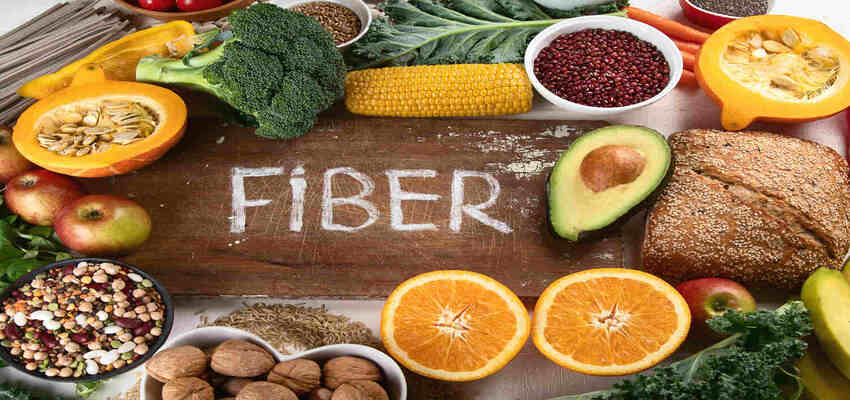
A lot of treatment options are available, depending upon the symptoms and the severity. The best management of anal fissure in toddlers is the combination of both home remedies and medical treatment. Mostly, the main aim of the treatment is to reduce straining and to soften the stools. The following remedies and treatment can be helpful for you if your toddler is suffering from these painful fissures-
1. Keeping The Anal Area Clean
It is important to keep the anal area clean after every bowel movement. Make sure that you clean and wipe the area with gentle hands. Use plain water or a very mild soap for cleaning. Avoid using wipes with alcohol and artificial fragrances, as they can irritate the affected area.
2. Soak in Warm Water
Sometimes soaking your toddler’s bottom in a warm water bath for about 15 minutes can help soothe the pain and discomfort.
3. Increase Fiber Content in Diet
Make sure that your toddler consumes enough fiber in the form of fruits and vegetables. Fiber in food helps in softening stool thus, reducing the risk of anal fissure. Also, make sure that your toddler drinks enough water during the day.
4. Use of Barrier Creams
You can apply a thin layer of zinc oxide or petroleum jelly around the anal area. The thin layer of these creams acts as a barrier and promotes healing.
5. Stool Softeners
If your kid is suffering from constipation then, stool softeners might be added. They ensure that the stools are soft for easy passage through the rectum (4). This makes bowel movements less painful for the little one.
6. Medications
In a few cases, pediatricians might add some topical medications. These medicines include nitroglycerin or nifedipine, which help relax the muscles around the anus and promote faster healing (5). Pain-relieving medicines are also prescribed to ease the severe pain in toddlers. Sometimes anesthetic creams are given to relieve the pain around the anal area.
7. Surgery
In severe and rare cases, surgical intervention might become necessary. Whenever chronic anal fissures do not respond to treatment, then surgery becomes essential. The surgical procedure involves relaxing the muscles around the anus and removing the damaged tissue. The name of this surgery is lateral internal sphincterotomy (6).
Complications of Anal Fissures
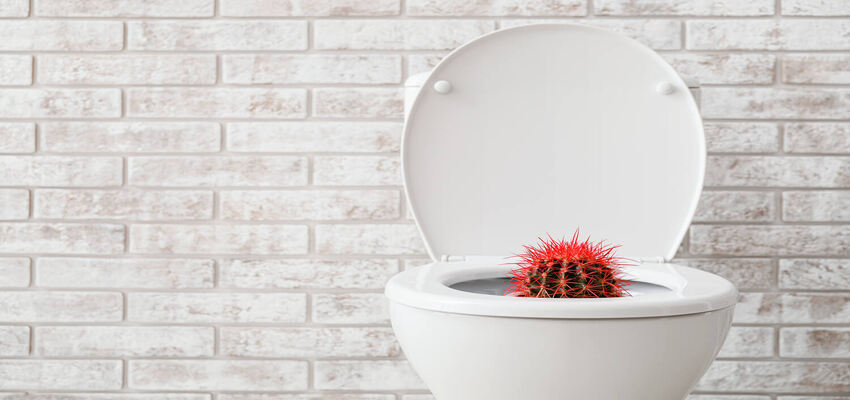
Muscle spasm of the sphincter muscle can happen due to the pain from fissures. This spasm can worsen the tear during a bowel movement. This cycle can lead to chronic fissure in many toddlers, which is one of the most common complications of anal fissure. Some other complications are-
- Trouble having bowel movements due to the severe pain and discomfort
- Worsening of constipation
- Infection leading to the formation of pus-containing abscesses
- Anal stenosis can happen when the anal canal becomes narrow due to contraction of the scar tissue or spasm of the anal sphincter
- Uncontrolled bowel movement in a few cases
Tips to Prevent Anal Fissures in Kids

You can always avoid the recurrence of fissures in your toddler by following certain precautions-
- Make sure that your toddler drinks enough water and other fluids
- Give them a diet rich in fiber in the form of whole grains, fruits and vegetables
- Help your kid maintain a routine bowel habit
- Avoid giving them very oily and spicy food, as it can worsen the condition
- Give them stool softeners in cases of hard stool
- Follow good hygiene practices and make sure that the area is clean after every bowel movement to avoid any infection
When to Call a Doctor?

Usually, the anal fissure in toddlers heals after treatment. As a guardian, you need to stay vigilant about any new or recurring signs and symptoms in your toddler. Call your healthcare provider if-
- You notice any fresh blood in your kid’s stool
- Bowel movements become more painful
- There is an increase in the severity of pain and discomfort
An acute anal fissure in toddlers usually heals within six weeks of treatment. The key to preventing it is to avoid constipation and straining during a bowel movement. Encourage your kid to have more and more fibrous foods in their diet. If you feel that your toddler might have an anal fissure, then do not hesitate to take them to a doctor.
FAQ’s
1. Is There a Relation Between Anal Fissures And Constipation in Kids?
Yes. Long-standing constipation in kids can result in anal fissures. This happens due to overstretching of the anal mucosa upon passing hard stools. That is why treatment of anal fissures aims at eliminating constipation in kids.
2. How Can I Help my Kid Live a Better Life With Anal Fissures?
You can help your kid with anal fissure by encouraging them to eat foods with a high fiber content. Make sure that they are drinking enough water. If they are struggling with hard stools, then, give them a stool softener.
3. Can a Small Fissure Heal on Its Own?
Most cases of small anal fissures heal on their own. With an early diagnosis and proper care, it can heal on its own. Provided there is no constipation or hard stools. Use of stool softeners can help with faster healing.
4. What is The Fastest Way to Heal a Fissure?
Most of the time, fissures can be healed by taking care of constipation and avoiding excessive straining. Use of sitz baths is also one way to speed healing. A few dietary changes, such as increasing water intake along with the use of stool softeners, can help promote fast healing.
5. Can Vaseline Help Heal Fissure?
Yes, Vaseline or other petroleum jelly acts as a barrier and promotes healing. Applying a thin layer to the anal area helps seal the moisture and gives a soothing effect.
References
- Patkova B, Wester T. Anal Fissure in Children. Eur J Pediatr Surg. 2020 Oct;30(5):391-394. doi: 10.1055/s-0040-1716723. Epub 2020 Sep 13. PMID: 32920798. – https://pubmed.ncbi.nlm.nih.gov/32920798/
- Australian and New Zealand Journal of Surgery, Cameron Platell, John Mackay, Brian Collopy, Roy Fink, Peter Ryan, Rodney Woods, First published: January 1996 https://doi.org/10.1111/j.1445-2197.1996.tb00690.x – https://onlinelibrary.wiley.com/doi/abs/10.1111/j.1445-2197.1996.tb00690.x
- Marion Jonas, John H. Scholefield, ANAL FISSURE, Gastroenterology Clinics of North America, Volume 30, Issue 1,2001, Pages 167-181, ISSN 0889-8553, https://doi.org/10.1016/S0889-8553(05)70172-2. – https://www.sciencedirect.com/science/article/abs/pii/S0889855305701722
- Han, Gr., Mishra, N. (2023). Chronic and Refractory Anal Fissure: What Are the Treatment Options?. In: Umanskiy, K., Hyman, N. (eds) Difficult Decisions in Colorectal Surgery. Difficult Decisions in Surgery: An Evidence-Based Approach. Springer, Cham. https://doi.org/10.1007/978-3-031-42303-1_40 – https://link.springer.com/chapter/10.1007/978-3-031-42303-1_40
- Joda AE, Al-Mayoof AF. Efficacy of nitroglycerine ointment in the treatment of pediatric anal fissure. J Pediatr Surg. 2017 Nov;52(11):1782-1786. doi: 10.1016/j.jpedsurg.2017.04.003. Epub 2017 Apr 8. PMID: 28410787. – https://pubmed.ncbi.nlm.nih.gov/28410787/
- Lu Y, Lin A. Lateral Internal Sphincterotomy. JAMA. 2021;325(7):702. doi:10.1001/jama.2020.16708 – https://jamanetwork.com/journals/jama/fullarticle/2776331
